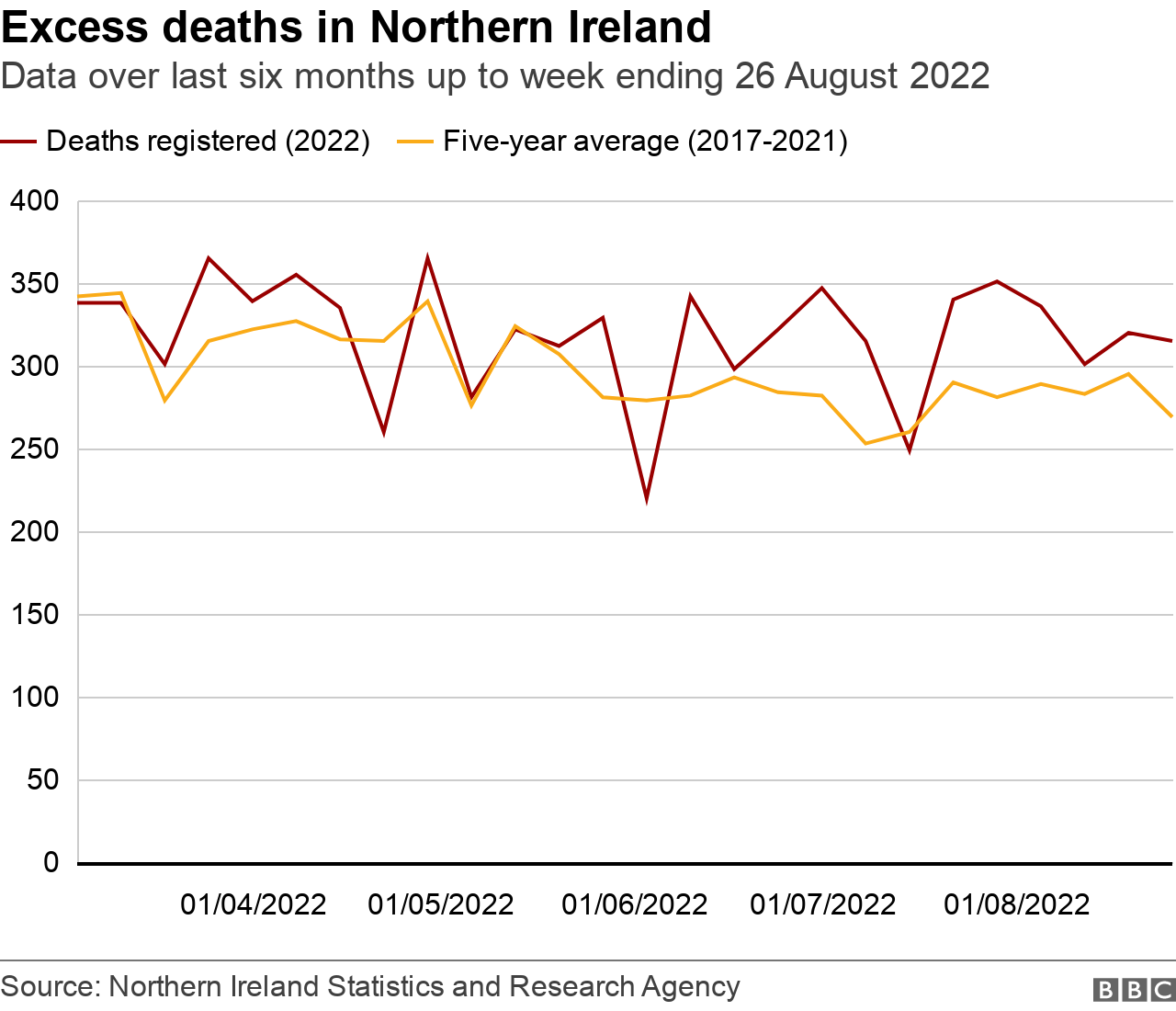NI healthcare pressures contributed to 300 excess deaths
- Published
- comments

There are warnings so-called excess deaths will continue into the winter months
There have been 300 more deaths than expected across Northern Ireland in the past 10 weeks, many as a result of acute pressures on the health system.
These excess deaths are a measure of how many more people are dying compared to the five-year average.
Experts say this trend may continue into the winter months and beyond unless healthcare pressures are eased.
An ageing population, delayed diagnoses and access to services as well as Covid are seen as contributing factors.
How much is Covid-19 to blame?
The 10-week window offers a snapshot into a very complex issue.
There were 3,200 deaths in the last 10 weeks, which is 16% more than the five-year average, according to NI Statistics and Research Agency (Nisra) data.
The number of people older than 70 increased by 15% in the past five years.


Once the changing demographics are considered - chiefly people getting older - death rates are 12% higher than normal, which equates to 340 more deaths than what is expected at this time of year.
A large number of the 340 people will have been elderly who will have died from conditions such as cardiovascular disease and diabetes.
While the pandemic may be a factor, compared to previous years, people have never been better protected against the virus.
Most have either been vaccinated, had the virus, or both, which means resistance to Covid-19 is higher.
There are also more effective drugs to treat the most chronic of cases.

Even with Northern Ireland's ageing population, the excess death rate is still much higher than normal
So why in recent months have there been more deaths that expected?
The founder of the Covid-19 Actuaries Response Group said it was difficult to see numbers falling because Northern Ireland's healthcare system was under tremendous pressure.
"It's hard to see the pressures that the health system is under relenting in the very short term," Stuart McDonald told BBC News NI.
"So it's quite possible that we see a continuation of this excess deaths pattern into the winter months, which would be a really bad outcome.
"We are talking about a third year of very high mortality."
Cancer diagnoses 'lag'
A virologist based at Queen's University Belfast said the consensus was that the Covid-19 vaccines were highly unlikely to be contributing to or driving these excess deaths.
Dr Connor Bamford said the safety of the vaccine was taken very seriously, with any side effects being extremely rare.
He said that the known side effects were also very specific and are "not really fitting with the general cause of these excess deaths which we have seen".
"The best evidence we have is that this seems to be a worse problem for the UK, which doesn't really fit with the global usage of these vaccines over the last couple of years," he added.
GP Dr Alan Stout agrees that excess deaths in Northern Ireland are likely to rise over the coming months.
He has also warned that the Nisra figures have yet to reflect the "lag" of delayed cancer diagnoses.
It could take another three to six months to translate those into statistics, he added.
Dr Stout also said an increase in mortality figures was predicted, mainly due to a growing and ageing population.
He said healthcare professionals had "struggled to change the system for a number of factors to accommodate that".
- Published18 November 2021

- Published28 July 2020

- Published4 March 2021
